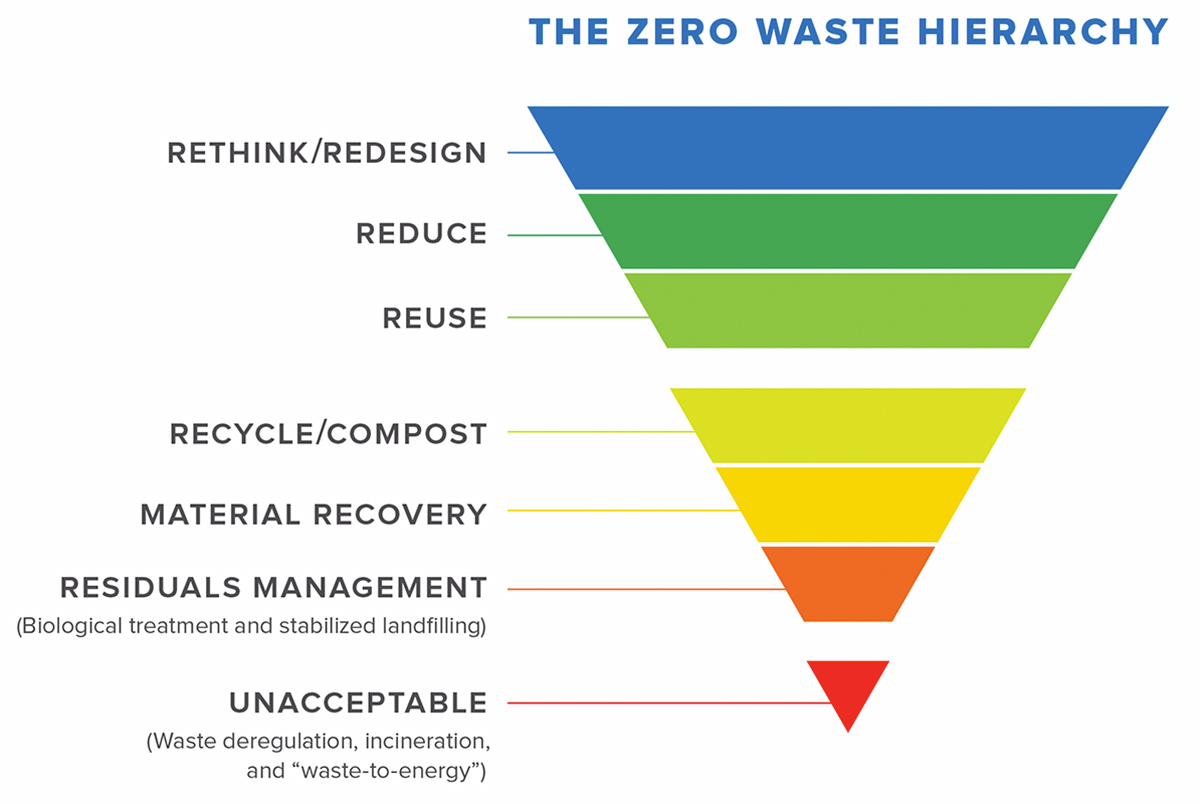The Zero Waste Hierarchy
Cal Poly students have demonstrated a strong interest in improving Zero Waste efforts and recycling at Cal Poly, and have created the RRR Training module with short videos to educate about each portion of the Zero Waste Hierarchy, as well as specifics about what can be recycled and composted on campus. If you think you are already an expert, scroll down to the quiz at the end of the training and see how much you know about waste!
Rethink

Examine what you typically buy, from furniture to a cup of coffee. Do you really need that item? If so, is it single-use, or is there a durable, reusable alternative? How is it packaged, and is there a way to purchase the product without the packaging? If it must be packaged, can the packaging be made to be reusable, recyclable, or compostable?
On a personal level, to bring reusable items for your daily activities – bamboo or stainless cutlery, insulated coffee mug or reusable water bottle - do you need a bigger backpack or one with more pockets?
Refuse
- Say "No, thanks!" to plastic bags – bring your own bag!
- Don't accept swag at events unless the items are useful and needed.
- Avoid buying products that use excessive or unnecessary packaging.
- Don't accept paper flyers; take a picture of the info, or make a note on your phone.
Reduce
- Buy products in bulk to avoid excess packaging.
- Buy quality clothing and housewares; avoid cheap materials that don't last.
- Avoid purchasing fad or impulse items.
- Buy local and bring your own bag. Buying local creates local jobs while reducing packaging waste and greenhouse gases from shipping.
Re-use
- Get a reusable water bottle and bring it with you wherever you go.
- Bring a reusable mug when you plan to purchase coffee or tea, and get a 25-cent discount at campus coffee shops!
- Bring a set of metal or bamboo utensils in your backpack and avoid single-use plastic.
- Bring your food in Tupperware, glass, or reusable wraps instead of plastic bags.
- Get a plug-in battery charger and use rechargeable batteries instead of disposable ones.
- Save unwanted clothing for campus clothing swaps, or donate for reuse.
Lastly, learn how to properly recycle and compost by reading more here!
